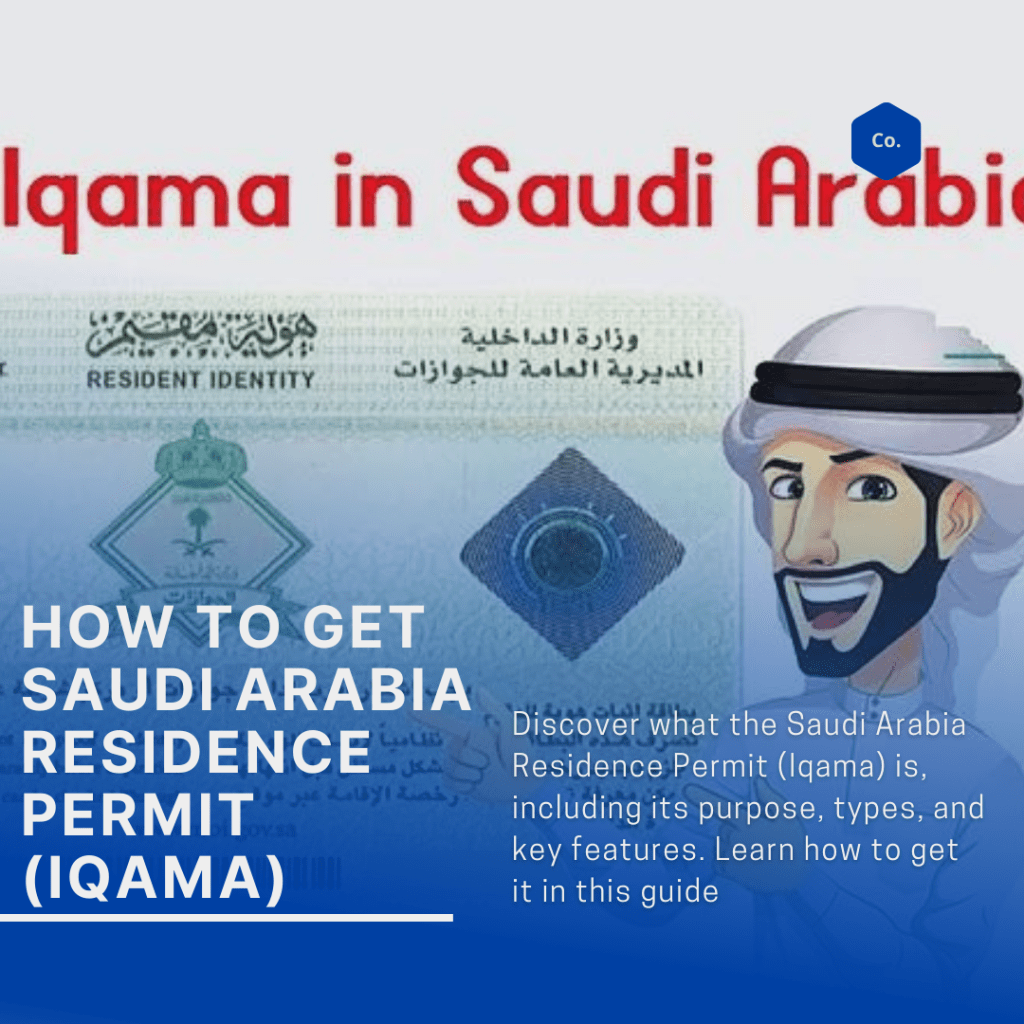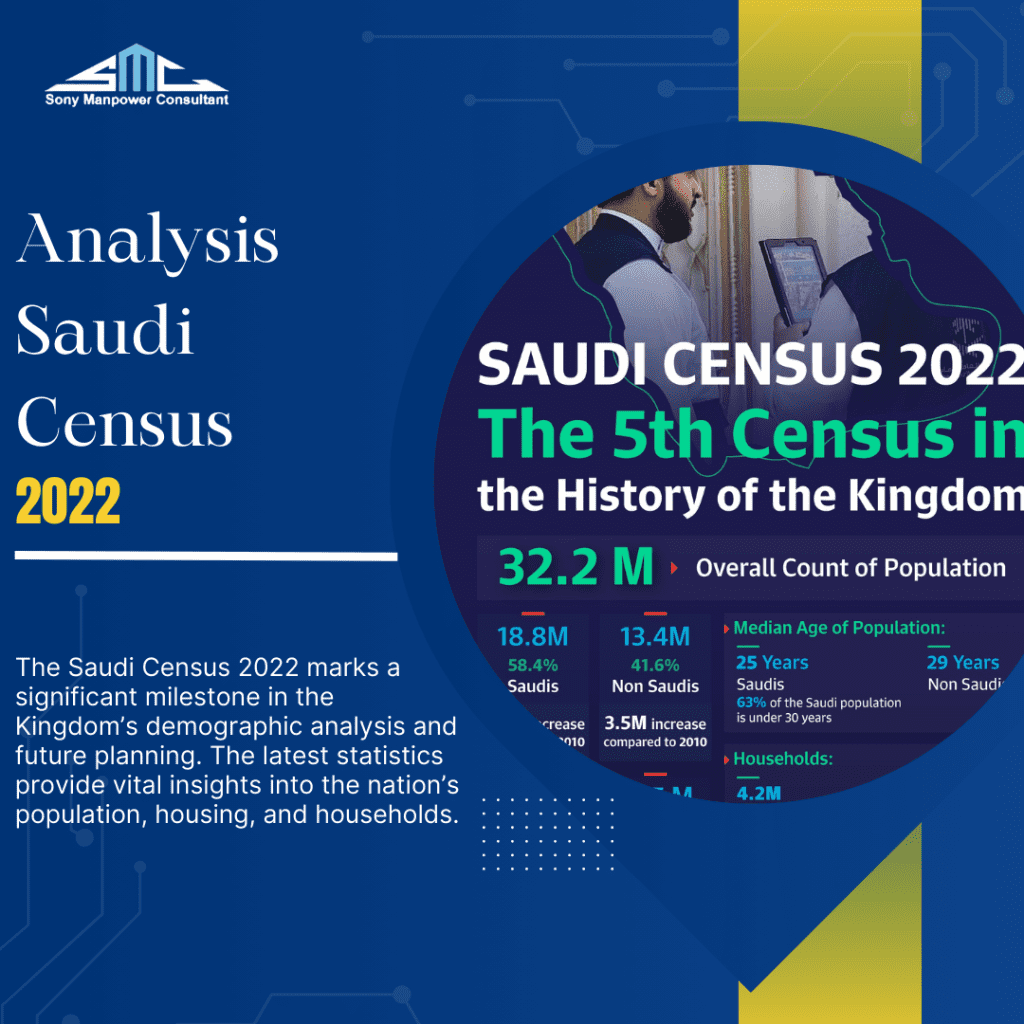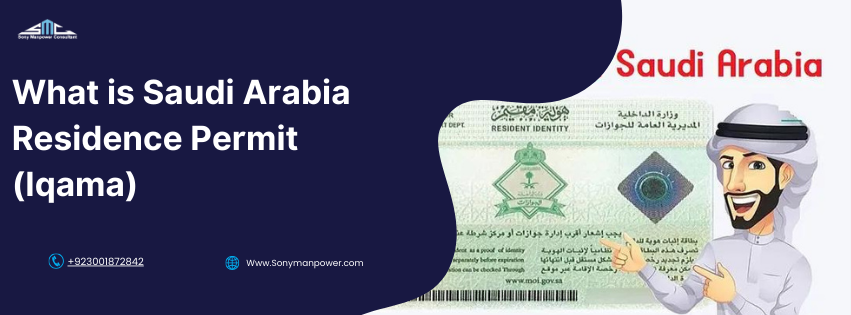What is Saudi Arabia Resident Identity Card (Iqama)

What is Saudi Arabia Resident Identity Card (Iqama) In Saudi Arabia, the term “Iqama” is very important for expatriates. This article will explain what Iqama is, and look at the different types issued by Saudi authorities. We’ll start with a simple overview of Iqama. Its purpose, and the various kinds available to expatriates living and working in Saudi Arabia. What is Iqama in Saudi Arabia? Iqama(residence permit) is an identity card issued by the Saudi government. That acts as a residency permit for expatriates living in the Kingdom of Saudi Arabia (KSA). Although It is closely linked to a sponsor, typically an employer, and serves as proof of legal residency. The Iqama allows expatriates to access various services and benefits in the country. Obtaining an Iqama can be complex. What is the Purpose of Iqama in Saudi Arabia? The Iqama(residence permit) in Saudi Arabia serves several key purposes. It is your official identification card and proof of legal residency. Primarily, it is essential for lawful employment. Showing your connection to a local sponsor and functioning as both your residence and work permit. This crucial document ensures you comply with immigration and work regulations. Providing a clear framework for expatriate employment in the Kingdom. If you need help with the Iqama (residence permit) process, consider the services of Sony ManPower Recruitment. They can provide valuable assistance in navigating the complexities of Saudi Arabia’s residency system. What Are the Benefits of Iqama in Saudi Arabia? Business Opportunities The Iqama( residence Permit) provides expatriates with the ability to establish and manage companies in Saudi Arabia while complying with foreign investment regulations. This facilitates entrepreneurial ventures and supports economic growth among expatriates. Travel Freedom With an Iqama, expatriates enjoy the freedom to enter and exit Saudi Arabia without needing a separate visa for each visit. This streamlined travel process enhances overall convenience and efficiency for residents. Family Visits The Iqama also allows expatriates to apply for visitor visas for family members, making it easier to facilitate family reunions and maintain close connections with loved ones. Active Participation in the Saudi Economy Aligning with Saudi Arabia’s Vision 2030, the Iqama integrates expatriates as integral contributors to the Saudi economy. It helps boost consumption by improving purchasing power, promotes economic activity across various sectors, supports the growth of small and medium enterprises, and creates job opportunities for Saudi citizens. Legal Framework and Consequences The Iqama operates within a legal framework that emphasizes accountability, requiring adherence to specific conditions. Non-compliance with these conditions can lead to the cancellation of the permit. Reasons for cancellation include providing false information, criminal convictions, or deportation orders, ensuring a transparent and lawful process. Who Needs Iqama (residence Permit) in Saudi Arabia? If you are planning to move to Saudi Arabia with your family, obtaining an Iqama is the first step, as it allows you to sponsor your spouse and/or children. For anyone moving to Saudi Arabia or staying for more than 90 days, an Iqama or Saudi ID Card is required. This card is essential for expatriates as it confirms their legal residency and provides access to various services and benefits within the country. If you plan to live and work in Saudi Arabia, having an Iqama or updating your iqama is crucial. How to find the iqama number by passport number To find your Iqama number using your passport number: Visit Absher Portal: Go to Absher.sa and log in. Navigate to Services: Find the option to query Iqama status. Enter Passport Number: Input your passport number and submit. View Iqama Number: Your Iqama number should appear if the details are correct. Alternatively, visit a Passport office (Jawazat) in Saudi Arabia with your passport for assistance. How Many Types of Iqama (Residence Permits) in Saudi Arabia? Saudi Arabia offers several types of Iqama to meet the diverse needs of expatriates: Domestic Worker Iqama: Issued to individuals employed as domestic workers, such as maids, drivers, and cooks. Labor Class Iqama: For expatriates working in lower-skilled labor positions. Professional Class Iqama: Designed for individuals in specialized or professional roles. Dependents Iqama: Granted to family members of expatriates, allowing them to reside in Saudi Arabia. Government Employees Iqama: Issued to expatriates working in government positions. Business Iqama: For expatriates who own or are involved in business operations in a country. Special Privileged Iqama (Green Card): A special residency permit that offers various benefits in Saudi Arabia. Let’s Explore Each Type of Iqama in Detail 1. Domestic Worker Iqama The Domestic Worker Iqama is issued to foreign household employees hired by Saudi citizens. This category includes positions such as housemaids, drivers, nannies, and watchmen. Holders of this Iqama have access to government hospital services. However, they cannot apply for permanent family visas or family visit visas. 2. Labor Class Iqama The Labor Class Iqama is granted to those workers in labor-intensive fields. Such as construction site workers, welders, plumbers, cleaners, and painters. Those with this Iqama receive insurance coverage from their sponsoring companies. 3. Professional Class Iqama Professional Class Iqama is designated for those individuals with professional degrees. Which includes doctors, nurses, engineers, and pharmacists. Professionals in this category working in the private sector receive insurance benefits from their employers. Holders of this Iqama can sponsor family members for visits and permanent stays and are eligible to apply for visas to countries like the UK and the USA. However, they may need to register with specific regulatory authorities in Saudi Arabia depending on their profession. 4. Dependents Iqama The Dependents Iqama is intended for the family members of expatriates or foreign workers. Which resides in Saudi Arabia. To obtain this Iqama, the expatriate must be present in Saudi Arabia under a permanent visa and initiate the application process for their family members. 5. Government Employees Iqama Foreign employees working in the government sector of Saudi Arabia receive the Government Employees Iqama. This permit allows them to access government sector services and sponsor family members for visits or permanent visas without incurring additional dependent fees.
Saudi Census 2022: From 2010 to 2022 Census Changes

Saudi Census 2022: From 2010 to 2022 Census Changes Introduction: Saudi Census 2022 & Saudi Arabia’s Population The Saudi Census 2022 marks a significant milestone in the Kingdom’s demographic analysis and planning. The newly released statistics provide vital insights into the nation’s population, housing, and households. In this comprehensive guide, we invite you to delve into the intricacies of the census results, gaining an in-depth understanding of the data’s significance for the future of Saudi Arabia. Saudi Census 2022 Detail Guide Explore the statistics and population data of the Kingdom of Saudi Arabia. Through this table to gain a comprehensive understanding of the Saudi Census 2022 results. Population Figures for Saudi Census 2022 Through this table, you can understand the Saudi Census 2022 statistics & population of KSA. Category Count Percentage (%) Total Population 32.2 million 100% Saudis 18.8 million 58.4% Non-Saudis 13.4 million 41.6% Median Age 29 years Saudis Aged Under 30 63% Males 19.7 million 61% Females 12.5 million 39% Key Demographic Figures: Saudi Arabia Census 2022 – Total Population, Saudis, Non-Saudis Comparison of the Saudi Arabia Census in 2022 with the Saudi Census in 2010: Data Point 2010 Census 2022 Census Change (2010-2022) Total Population 27,136,977=27.5m 32.2 million +8.2 million (34.2%) Saudis 18,707,576 = 18.7M 18.8 million +4.8 million (33.8%) Non-Saudis 8,429,401= 8.4m 13.4 million +3.5 million (34.7%) Median Age [2010 Data] 29 years [No significant change] Saudi Male Population 9,527,173 = 9.5m 19.7 million [Change] (2022-2010) Saudi Female Population 9,180,403 = 9.2M 12.5 million [Change] (2022-2010) Key Insights: Population Growth: The total population of Saudi Arabia increased by 5.1 million, reflecting significant growth over the 12 years. Increase in Saudis and Non-Saudis: The number of Saudis rose by 2.5 million. While non-Saudis increased by 2.6 million, indicating a stable influx of expatriates. Aging Population: The median age of the population increased from 26.5 years to 29 years. Indicating an overall trend toward an older population. Youth Demographics: The proportion of Saudis under 30 years of age rose from 60% to 63%. Highlighting a continuing youthful demographic. Gender Distribution: The male population increased significantly, by 4.6 million. Compared to a more modest increase of 0.5 million in the female population, affecting the overall gender ratio. This comparison illustrates the demographic shifts in Saudi Arabia between the 2010 and 2022 censuses. Providing valuable insights for future planning and policy development. Population Figures: The Heart of the Census The core of any census lies in its population figures. According to the 2022 census, Saudi Arabia’s population has reached an impressive 32.2 million. This reflects a significant increase since the previous count. Saudis constitute the majority, making up approximately 58.4% of the population. The remaining 41.6% are non-Saudis. This data is crucial as it provides insights into the demographic composition of the country. Aiding the government in making informed plans for the future. Understanding the makeup of the population helps in addressing the needs and challenges faced by both Saudi and non-Saudi residents. Youthful Population: A Median Age of 29 One of the most notable findings from the Saudi Census is the youthful nature of the population, with a median age of 29 years. A striking 63% of Saudis are under the age of 30, highlighting a demographic trend that carries significant implications for various sectors, including education, employment, and social services. Understanding this youthful demographic is essential for effective policy development and resource allocation. Gender Distribution: A Closer Look The census results also shed light on the gender distribution within Saudi Arabia. The male population stands at 19.7 million, making up 61% of the total population. While the female population is 12.5 million, representing 39%. This data not only informs policies aimed at promoting gender equality. But also plays a crucial role in planning healthcare, education, and other services tailored to the specific needs of different segments of the population. Recognizing these disparities allows for more targeted and effective governance. Geographical Distribution: From Riyadh to Dammam Saudi Arabia is a vast country with diverse regions. The capital city, Riyadh, is also the largest city in the Kingdom. Other major cities include Jeddah, Makkah, Madinah, and Dammam. Understanding the geographical distribution of the population is essential for planning and development. As it helps ensure that each area receives adequate support and resources. By recognizing where people live, the government can implement targeted strategies for growth and development. Ensuring that all regions meet their unique needs. Housing Insights: More Than Eight Million Residential Places The 2022 census provides valuable insights into housing, revealing that Saudi Arabia has over eight million residential units. Notably, apartments comprise a significant portion of the housing market, accounting for 51% of the total residential landscape. This data is crucial for urban development and the real estate sector. As it helps ensure that housing needs are adequately met. Understanding the distribution and types of residential places. Allows policymakers and developers to plan effectively for future growth and address. The evolving housing demands of the population. Family Composition: Insights into Saudi Households Understanding family composition is crucial for developing effective social services and policies. According to the census data, there are approximately 4.2 million Saudi families, with an average family size of 4.8 members. The gender distribution within these families is nearly balanced, with 50.2% males and 49.8% females. In contrast, non-Saudi families have an average size of 2.7 members per family, with males constituting 76% of the total non-Saudi population in the Kingdom. This information provides valuable insights into the dynamics of households in Saudi Arabia, helping policymakers tailor social programs and services to meet the needs of both Saudi and non-Saudi families effectively. Backcasting: Reflecting on Population Changes One of the unique features of the 2022 census is its backcasting capability, which allows for the estimation of population changes since the previous census in 2010. A comparison between the 2022 census data and the backcasted figures from 2010 indicates that Saudi Arabia’s total population has grown by 8.2 million, representing a significant 34.2%
What is Saudi Arabia Resident Identity Card (Iqama)

What is Saudi Arabia Resident Identity Card (Iqama) In Saudi Arabia, the term “Iqama” is very important for expatriates. This article will explain what Iqama is, and look at the different types issued by Saudi authorities. We’ll start with a simple overview of Iqama. Its purpose, and the various kinds available to expatriates living and working in Saudi Arabia. What is Iqama in Saudi Arabia? Iqama(residence permit) is an identity card issued by the Saudi government. That acts as a residency permit for expatriates living in the Kingdom of Saudi Arabia (KSA). Although It is closely linked to a sponsor, typically an employer, and serves as proof of legal residency. The Iqama allows expatriates to access various services and benefits in the country. Obtaining an Iqama can be complex. What is the Purpose of Iqama in Saudi Arabia? The Iqama(residence permit) in Saudi Arabia serves several key purposes. It is your official identification card and proof of legal residency. Primarily, it is essential for lawful employment. Showing your connection to a local sponsor and functioning as both your residence and work permit. This crucial document ensures you comply with immigration and work regulations. Providing a clear framework for expatriate employment in the Kingdom. If you need help with the Iqama (residence permit) process, consider the services of Sony ManPower Recruitment. They can provide valuable assistance in navigating the complexities of Saudi Arabia’s residency system. What Are the Benefits of Iqama in Saudi Arabia? Business Opportunities The Iqama( residence Permit) provides expatriates with the ability to establish and manage companies in Saudi Arabia while complying with foreign investment regulations. This facilitates entrepreneurial ventures and supports economic growth among expatriates. Travel Freedom With an Iqama, expatriates enjoy the freedom to enter and exit Saudi Arabia without needing a separate visa for each visit. This streamlined travel process enhances overall convenience and efficiency for residents. Family Visits The Iqama also allows expatriates to apply for visitor visas for family members, making it easier to facilitate family reunions and maintain close connections with loved ones. Active Participation in the Saudi Economy Aligning with Saudi Arabia’s Vision 2030, the Iqama integrates expatriates as integral contributors to the Saudi economy. It helps boost consumption by improving purchasing power, promotes economic activity across various sectors, supports the growth of small and medium enterprises, and creates job opportunities for Saudi citizens. Legal Framework and Consequences The Iqama operates within a legal framework that emphasizes accountability, requiring adherence to specific conditions. Non-compliance with these conditions can lead to the cancellation of the permit. Reasons for cancellation include providing false information, criminal convictions, or deportation orders, ensuring a transparent and lawful process. Who Needs Iqama (residence Permit) in Saudi Arabia? If you are planning to move to Saudi Arabia with your family, obtaining an Iqama is the first step, as it allows you to sponsor your spouse and/or children. For anyone moving to Saudi Arabia or staying for more than 90 days, an Iqama or Saudi ID Card is required. This card is essential for expatriates as it confirms their legal residency and provides access to various services and benefits within the country. If you plan to live and work in Saudi Arabia, having an Iqama or updating your iqama is crucial. How to find the iqama number by passport number To find your Iqama number using your passport number: Visit Absher Portal: Go to Absher.sa and log in. Navigate to Services: Find the option to query Iqama status. Enter Passport Number: Input your passport number and submit. View Iqama Number: Your Iqama number should appear if the details are correct. Alternatively, visit a Passport office (Jawazat) in Saudi Arabia with your passport for assistance. How Many Types of Iqama (Residence Permits) in Saudi Arabia? Saudi Arabia offers several types of Iqama to meet the diverse needs of expatriates: Domestic Worker Iqama: Issued to individuals employed as domestic workers, such as maids, drivers, and cooks. Labor Class Iqama: For expatriates working in lower-skilled labor positions. Professional Class Iqama: Designed for individuals in specialized or professional roles. Dependents Iqama: Granted to family members of expatriates, allowing them to reside in Saudi Arabia. Government Employees Iqama: Issued to expatriates working in government positions. Business Iqama: For expatriates who own or are involved in business operations in a country. Special Privileged Iqama (Green Card): A special residency permit that offers various benefits in Saudi Arabia. Let’s Explore Each Type of Iqama in Detail 1. Domestic Worker Iqama The Domestic Worker Iqama is issued to foreign household employees hired by Saudi citizens. This category includes positions such as housemaids, drivers, nannies, and watchmen. Holders of this Iqama have access to government hospital services. However, they cannot apply for permanent family visas or family visit visas. 2. Labor Class Iqama The Labor Class Iqama is granted to those workers in labor-intensive fields. Such as construction site workers, welders, plumbers, cleaners, and painters. Those with this Iqama receive insurance coverage from their sponsoring companies. 3. Professional Class Iqama Professional Class Iqama is designated for those individuals with professional degrees. Which includes doctors, nurses, engineers, and pharmacists. Professionals in this category working in the private sector receive insurance benefits from their employers. Holders of this Iqama can sponsor family members for visits and permanent stays and are eligible to apply for visas to countries like the UK and the USA. However, they may need to register with specific regulatory authorities in Saudi Arabia depending on their profession. 4. Dependents Iqama The Dependents Iqama is intended for the family members of expatriates or foreign workers. Which resides in Saudi Arabia. To obtain this Iqama, the expatriate must be present in Saudi Arabia under a permanent visa and initiate the application process for their family members. 5. Government Employees Iqama Foreign employees working in the government sector of Saudi Arabia receive the Government Employees Iqama. This permit allows them to access government sector services and sponsor family members for visits or permanent visas without incurring additional dependent fees.


